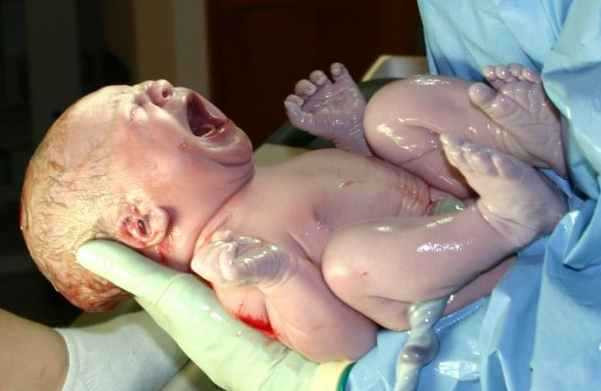Natural births protect babies from diseases

According to researchers, babies born by caesarean section are more vulnerable to asthma, allergies and infection as they miss out on their mothers' good protective bacteria during birth.
Professor Patricia Conway, of the School of Biotechnology and Biomolecular Sciences at the University of NSW, said babies delivered vaginally received protective bacteria as they passed through the birth canal. Left on the baby's skin, this bacteria could then colonise the intestine and help inoculate newborns against hospital bugs. Gut flora was also crucial for developing a balanced immune system, Professor Conway said. With a C-section, the newborn baby misses an opportunity to pick up a lot of mum's good bacteria, she said.
This can have long-term health implications, as the development of a good intestinal ecosystem is necessary for health and immunity to allergies, from childhood right through to adulthood.
Professor Conway said emergency caesareans, performed after labour had begun, meant babies did receive some of the beneficial bacteria, particularly if the waters had broken. But elective caesareans were ''sterile'' and gave babies no chance to pick up any of the mother's good bacteria.
However babies had other chances to receive their mother's bacteria, during skin-to-skin contact directly after birth and if they were breastfed.
Australian College of Midwives vice-president Hannah Dahlen said babies born vaginally had the advantage of hormonal surges during labour, which made them more wide-eyed and able to connect with their mothers.
Recent studies had shown white blood cells in babies born by caesarean were different to those born vaginally, potentially altering the way their bodies responded to attacks on their immune systems for the rest of their lives.
The studies could explain dramatic increases in rates of diabetes, testicular cancer, leukaemia and asthma among babies born surgically, Dr Dahlen said.
In 2008, European researchers examined 20 previous studies on the link between type 1 diabetes and caesareans and found babies born surgically had a 20 per cent increased risk of developing diabetes.
They hypothesised the increase could be attributed to surgically born babies having gut microbes picked up from hospital environments rather than their mothers' vaginas, having reduced or delayed exposure to infection in early life or being exposed to non-specific perinatal stress.





















